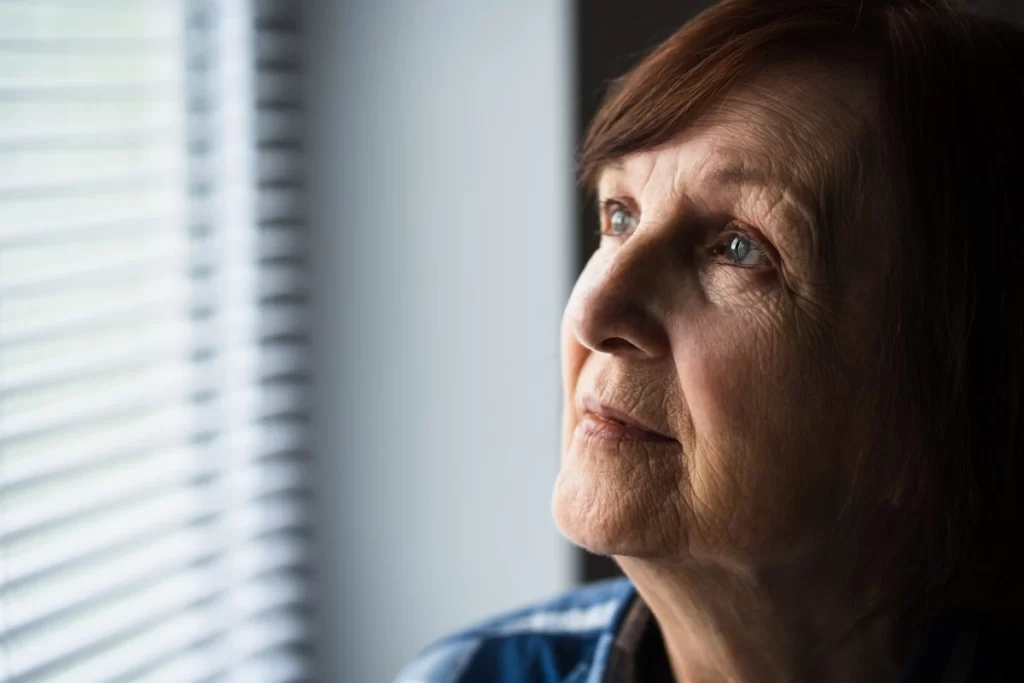The Link Between Depression and Relationships
A considerable amount of research has proven the close, cyclical link between depression and relationships. Depression has a significant impact on your relationship with loved ones, and the quality of these relationships can affect the severity of your depressive symptoms.
Everyone experiences occasional waves of sadness. However, if you keep feeling sad, hopeless, and desperate for over two weeks, this might indicate depression. Whether you are experiencing depression or have a loved one with this mental health condition, it is important to be aware of the symptoms and effects on relationships.
There are several ways in which depression can impact relationships. Feeling depressed can reduce your motivation to nurture a fulfilling relationship with your partner or family member. A depressive episode can also make people less interested in spending time with their friends. Also, symptoms of depression can make it harder to cope with stress in the workplace.
It’s important to understand that help is always available, and you can overcome your mental health challenge. At Nurseline Community Services, we provide person-centred care and support for individuals with mental health challenges, including depression, helping people live meaningful and fulfilled lives.

Challenges Faced by Individuals with Depression in Relationships
Individuals with depression may face various challenges in their romantic, friendship and professional relationships. Depression can cause difficulty concentrating and impact sleep habits, which can be challenging to manage and lead to mood swings. Depression can also lead to relationship challenges due to withdrawal.
Communication Challenges
Depression can cause communication challenges due to social withdrawal and isolation. A person’s depression can manifest in different ways, and for some people, they may struggle to communicate their feelings. Patience and compassion from loved ones are crucial in overcoming these warning signs of depression.
Emotional Withdrawal
Maintaining a healthy relationship requires significant effort, including emotional presence and regular engagement with the other person. When a person is going through a depressive episode, they may find it hard to express their emotions and engage in meaningful activities with their partners or friends.
It’s important for individuals to try to reach out and regain healthy connections with their loved ones. Patience and understanding are vital in understanding what a person with depression may be feeling.
Self-esteem Issues
During depressive episodes, people may face difficulties with their self-esteem. This can cause a person to view themselves and their challenges through a very negative lens. In order to help someone manage depression, you should act supportive and offer reassurance, reminding them of their great qualities.
Increased Irritability and Mood Swings
When a person is dealing with strong negative emotions, they may be prone to irritability and mood swings. Increased irritability and mood swings can cause conflict and disagreements. Therapy is helpful in helping individuals understand their feelings and their actions, improving relationships.
Impact on Intimacy
In some cases, depression significantly affects intimacy. Depressive episodes may prevent you from enjoying time spent with your partner and make you less involved in shared meaningful activities.
Furthermore, depression affecting your lack of libido may be a relationship challenge. Open discussions on how depression is impacting your mental health can deepen intimacy and reassure your partner.
Nurturing Relationships Amidst Depression
Maintaining a balanced and fulfilling relationship amidst depressive episodes can take a lot of patience and emotional effort. Finding ways to understand and manage your symptoms and feeling good about yourself is the first step towards nourishing healthy relationships with your loved ones. Below is a list of the most important measures you can take to nurture relationships during a mental health crisis.
Open and Honest Communication
Open and honest communication in a relationship involves empathy, cooperation, and understanding for the other person. When your partner experiences depression, you should be particularly careful about your choice of words and their impact.
For instance, in moments of frustration, you should take some time to gather your thoughts and reconsider your tone. When talking to a loved one with depressive episodes, it is recommendable to use phrases like “I hear you saying…” or “Help me understand…”. Try to understand the other person’s feelings and resolve the problems at hand without sounding judgemental and hostile.
Patience and Empathy
Depression can make it difficult for an individual to achieve a deep emotional connection to those around them, even their loved ones. They may socially withdraw due to feelings of sadness and low self-esteem. If your partner or close friend is going through an episode, it is important not to take their behaviour personally.
Remember that your loved one is not lazy or indifferent toward you, but their medical condition makes it difficult for them to put effort into activities they used to enjoy. Show empathy for their struggle and encourage them to take gradual steps towards recovery.
Practising Self-care
Living with major depression means being stuck in a cycle of negative, self-critical thoughts. Depressed individuals may focus on their flaws and blame themselves for their emotional struggles. Therefore, it is advisable to engage in self-care practices and introduce positivity in your mindset. Reminding yourself of your positive qualities and embracing compliments from your loved ones is a significant step towards emotional healing.
Taking up a new hobby can be a great way to rekindle your enthusiasm and motivation in life. Whether it is learning a new language, painting, or hiking – starting a meaningful activity can improve your physical and mental well-being. Start with small and manageable steps, then increase your weekly goals as the activity feels more rewarding.
Support from Friends and Family
Support from relatives and friends is essential in battling depression. It helps the person regain and maintain a good level of self-esteem. A supportive environment can encourage the person to reach out for help and access therapy.
Your relatives and friends help you find a good mental health care provider and accompany you to appointments. In addition to that, they can speed up your journey to recovery by motivating you to eat healthy food, drink less alcohol, and do regular exercise.
Seek Professional Help
Left undiagnosed and untreated, depression can cause various other medical issues, such as anxiety, sleep disorders, and digestive issues. Receiving an early diagnosis and treatment can help you take control of your symptoms and avoid additional health problems.
Therapy is essential for improving your quality of life, avoiding severe mental health crises, and reducing the risk of suicidal ideations. Nowadays, there are quality options for person-centred, humanised care services that help people with depression get their lives back on track.
How Relationship Counselling Can Help with Depression
Behavioural couple therapy (BCT) is the most appropriate choice for resolving relationship problems linked to depression. This type of relationship counselling addresses relationship distress, conflict, and alienation. Your counsellor should encourage open communication, problem-solving, and fruitful exchanges with your partner.
Couples therapy can improve your relationship’s functioning, and it may also decrease your depressive episodes. A good counsellor should outline a tailored strategy to help you both work as a team and talk through your feelings.
Nurseline Community Services is Tackling Depression with Social Care and Support
At Nurseline Community Services, we deliver quality care to individuals with major depressive disorder and mental health challenges. We aim to help people struggling with depression foster healthy relationships with their loved ones and take an active role in their local community.
Our expert team promotes a humanised approach to mental health support, and our clinicians are trained to deliver high-standard care in a mental health crisis. We offer professional support for people with major depressive disorder in their own homes, allowing the people we serve to stay close to their family members. Our clinicians encourage the independence of people with depression and their social integration within the local community.
If you need a quality care provider for yourself or a loved one struggling with depression, Nurseline Community Services is the right place for you. We offer nurse-led, impact-driven mental health support for children and adults with mental health needs.
Contact us now, and we will create a tailored care plan catering to your specific needs.




